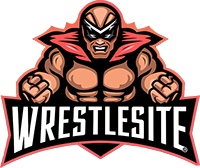Paul Wight Discusses His Journey in Wrestling and Impact on Health
Summary
– Paul Wight, the legendary wrestler, reflects on his career and the evolution of wrestling in an interview.
– He discusses the physical toll of wrestling on his body, including multiple joint replacements.
– Wight emphasizes the authenticity of AEW and his passion for helping new-age wrestlers find their path.
In a candid interview with WCCB News Rising, legendary wrestler Paul Wight shares insights into his illustrious career, the physical impact of wrestling on his body, and his thoughts on the current state of the sport. The interview, “Paul Wight Reflects on His Success, New-Age Wrestlers and How the Extreme Sport Impacted his Health,” was uploaded on YouTube on January 5, 2024.
Wight, who will be 52 in February, expresses a youthful enthusiasm for wrestling despite acknowledging its physical toll on his body. He humorously compares his transformation from looking like Jason Momoa to Shrek, highlighting the surgeries he has undergone, including knee and hip replacements. Despite these challenges, his love for wrestling remains undiminished.
Reflecting on his journey, Wight talks about his humble beginnings in South Carolina and how wrestling allowed him to travel and meet diverse people. He emphasizes the importance of living in the present and looking forward to new opportunities rather than dwelling on past achievements.
Wight also discusses the uniqueness of All Elite Wrestling (AEW), praising its authenticity and the freedom it gives wrestlers to find their path. This approach, he believes, is vital for the growth and development of new-age wrestlers. He shares his excitement about being part of AEW, helping upcoming talent, and his plans to continue being active in wrestling, television, and movies.
The interview provides a glimpse into the mindset of a wrestling legend who has seen the industry evolve over decades. Wight’s reflections offer valuable insights into the world of professional wrestling, its challenges, and the passion that drives wrestlers to continue despite the physical demands of the sport.




